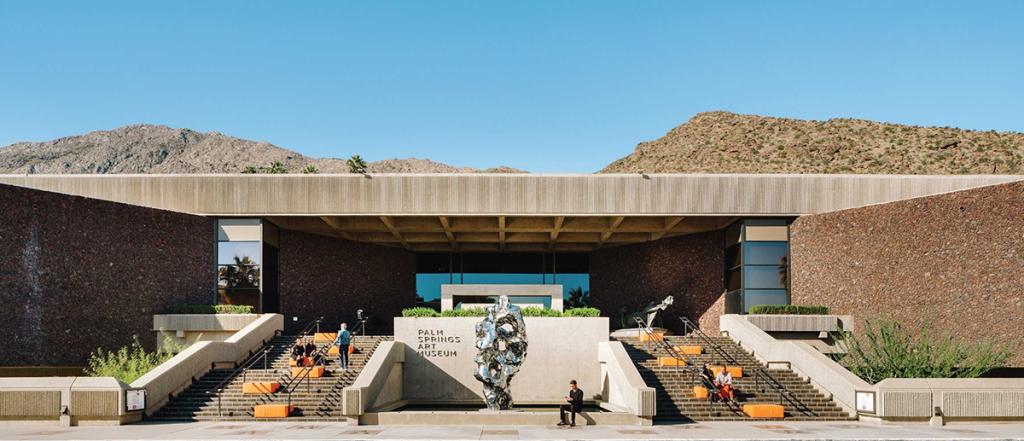[ad_1]
Major museums across the United States have been criticized for their response—or lack thereof—to the killing of George Floyd by police officers. The latest museum to come under fire in that respect is the Palm Springs Art Museum in California.
Employees at the museum and members of the Californian art scene have signed an open letter to the museum, which began circulating earlier this month and was written by Andrea Romero, a former curatorial assistant at the museum. Their missive decries the museum’s choice to wait until June 3 to comment directly on the protests and express solidarity with the Black Lives Matter movement in the form of an Instagram. The letter calls that post “a message of neutrality using the artwork of Alison Saar, whose work is far from neutral.”
The letter continues, “It is not enough for the museum to ‘reflect’ on the ‘power and possibility of art’ when there is no commitment to concrete and direct action against racism and anti-Blackness at your institution and within your community.”
The letter has garnered some 200 signatures, including those of artists Gabriela Ruiz and Eamon Ore-Giron; Self-Help Graphics executive director Betty Avila; independent curators David Evans Frantz and C. Ondine Chavoya, who co-curated the traveling exhibition “Axis Mundo: Queer Networks in Chicano L.A.”; and several current and former staff of the Palm Springs Art Museum, as well as staff from other Southern California museums, including the Museum of Contemporary Art, the Broad, the Hammer Museum, and the Getty Museum.
In an interview with ARTnews, Romero, who said she was fired from the museum and had experienced microaggressions during her time there, said, “The letter wasn’t about my personal experience of systemic racism—it was just an overall critique on the way that the leading arts institution in the Coachella Valley is really failing their communities, and communities of color especially. [The Instagram statement] was nothing but the rhetoric of neutrality, emphasizing all voices and all perspectives, which falls way below the standards of today’s global and contemporary social movement against white supremacy and racial injustice.”
Recently, the museum has mounted exhibitions focused on the lived realities of Black, Indigenous, and LGBTQ+ people. Romero’s letter takes the institution to task for not taking a stronger stance on these issues and goes on to allege that the museum is profiting off those communities’ struggles.
“It doesn’t make sense for a museum that’s benefitting off these types of exhibitions to stay silent when the movement is quite literally knocking on its doors,” Romero said. “It just seems tone-deaf and opportunistic, and it’s self-serving.”
When reached for comment, Grachos referred ARTnews to an email newsletter sent on June 9. In his letter, Grachos wrote, “Many important and valid points are identified in this letter, which I take very seriously. Thank you for your expression of concern and care for the museum and its future…. Museums, including ours, need to take steps to confront these issues about which our society has long been ambivalent.”
Grachos’s letter also reproduces a message that now appears on the museum’s website homepage, “Palm Springs Art Museum condemns racism in any form. We reject racial violence, discrimination, and injustice taken against Black communities. We reaffirm our commitment to maintaining an environment that respects all peoples.”
Romero, however, said she wanted to see the museum release concrete plans for how it will change. She proposed that the museum publicly release statistics on its visitors and staffs and offer strategies for how the institution will make sure those figures match the demographics of the country and the local community. She also suggested creating a “rotating advisory board comprised of employees at every level and community partners that will assess and report on the performance of anti-racism initiatives led by the museum.”
“There are a lot of concrete actions that can and should be taken by museums who in rhetoric have said that they pledge to action and do more and to reject racism,” Romero said. “If actions aren’t there, those words just become performative allyship. It’s still just the beginning of holding these institutions accountable.”
[ad_2]
Source link


